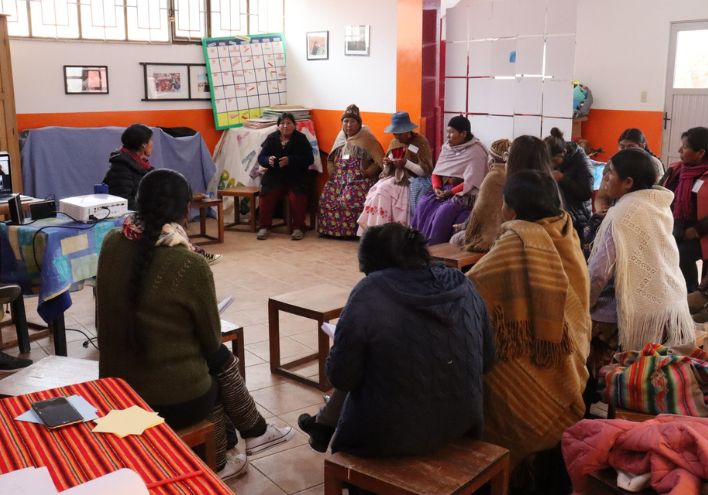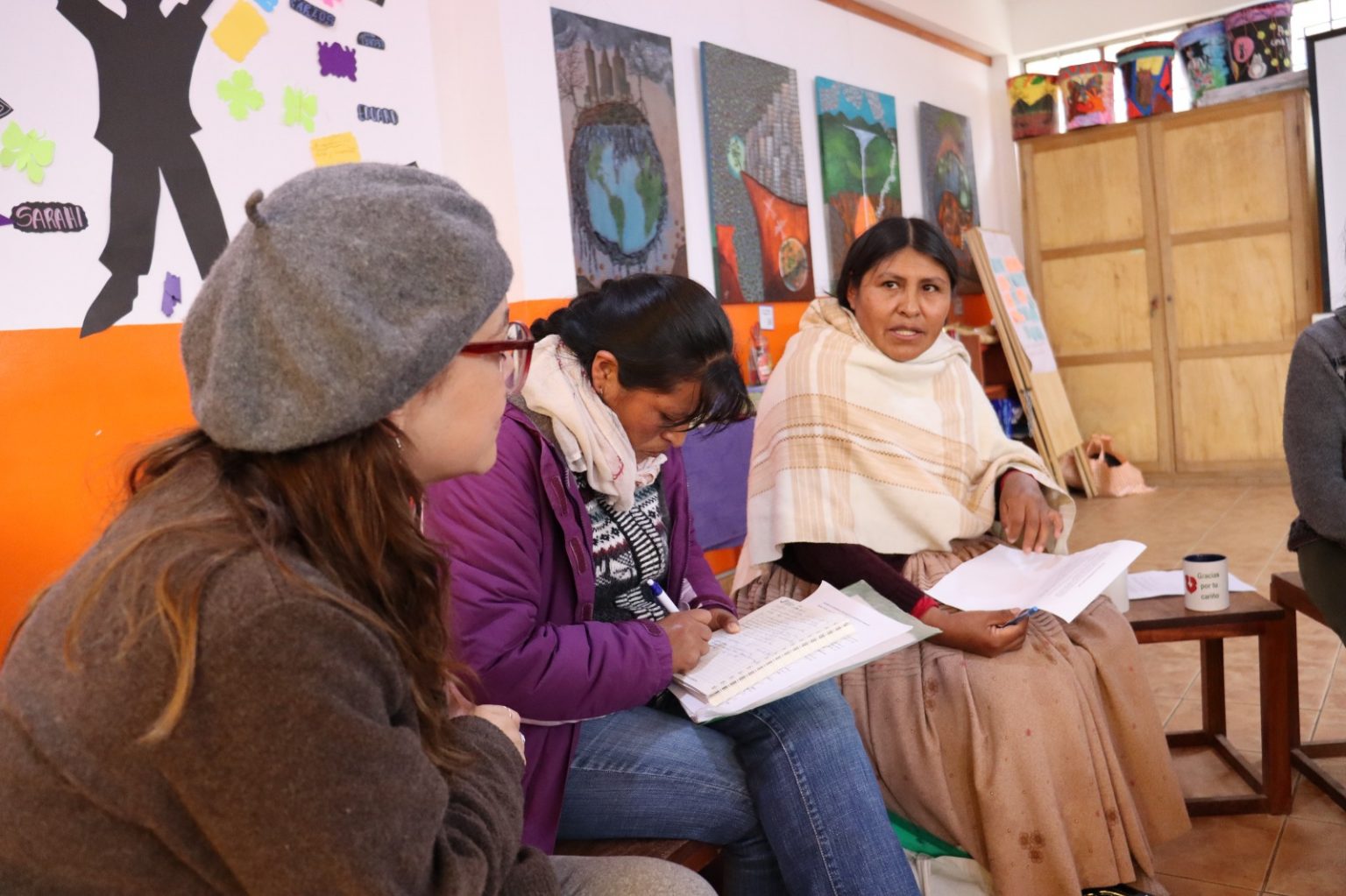Fourth World People’s University in Bolivia: A Transformative Space

An activism journey
“Here you grow alongside others. You think you’ve already grown enough in life, but the things that people share help us to grow more. At the People’s University, I see myself in others; there are people who have it worse than I do, but together we lift ourselves up again.”
This is the testimony of Martha Ticona who, after several years of involvement in the Fourth World People’s University in Bolivia, came together with fellow activists Emma Poma and Roxana Quispe to reflect on their journeys and the valuable lessons they have learned along the way.
Questions like “What lessons have we learned?” and “What did the Fourth World People’s University change for me personally?” guided this discussion that also involved Soledad Ortiz, a member of the Volunteer Corps in Bolivia.
Fourth World People’s University
Fourth World People’s University is a space for education and transformation grounded in the knowledge and experiences of people living in poverty. For over 15 years, members of ATD Fourth World in Bolivia have undertaken a journey of individual and collective growth within this space. This can be a difficult journey, since initially it can be fraught with fear and shame at speaking out and sharing experiences of injustice and humiliation.
- I have learned to express myself, to lose my fear, and to listen to other people. When you listen to other people, you feel like a family. So, by participating, I have also learned to think about how others live. — Roxanna
Despite the fear that can come with opening up in front of others, Emma feels that it’s essential to face those fears:
“If you don’t speak out, nothing will ever change. It’s important to speak up — to talk about these injustices and everything that comes with living in poverty, because that’s how we can change the lives of others who aren’t here.”
Emma Poma
Of course, it can take a long time to overcome this fear or at least learn to cope with it, as Roxana explains: “Before, I was even afraid to speak, to express myself, or to ask questions. Even now, I’m still afraid. It doesn’t happen overnight.”
Yet walking this path together has built a strong bond of mutual support and care. This experience is transformative; it gives them the conviction to reach out to others who are trapped in the loneliness that poverty brings and invites them to be part of this journey of transformation.
It’s about sharing our real life experiences. It’s in getting to know one another, with the same stories of our brothers and sisters. It’s about letting go of the pain and suffering. This allows you
to carry less of a burden. It is a space of healing and transformation. I want other people to discover and go through the whole process that I have gone through and continue to go through, Emma concludes.
This transformation is for everyone
It’s common in our movement to welcome people from different countries. That was the case for Soledad Ortiz, a member of the Volunteer Corps from Argentina, who joined the volunteer team in Cusco, Peru, before arriving in Bolivia in 2019. She shares how the People’s University helped her understand and grow to love the culture that welcomed her.
“This country has its own unique nuances, and I’ve learned so much from them […] Bolivia holds an ancestral knowledge that comes from the university of life, and I think it’s incredibly beautiful to experience that here. The People’s University is constantly showing us that knowledge doesn’t come only from theory, and that’s something we really need to learn.”
Soledad Ortiz
After more than six years in Bolivia, Soledad must now move on to a new mission. Not only is her suitcase filled with the memories and the relationships she has built over the years, but she also carries with her invaluable lessons. “The People’s University gives us the chance to witness the transformation of the activists […] In these spaces, we see how people who have lived in poverty, through so much oppression, with so many negative things, can go, step by step, on a journey in these spaces in order to free themselves,” explains Soledad, and she concludes, “We think together, but then we act together. So, once we listen and discover the harsh, difficult reality of poverty, it transforms our commitment.

A foundation for building shared knowledge
For over 15 years, the Fourth World People’s University in Bolivia has been organizing regular gatherings between people with lived experience of extreme poverty and those who have not experienced it. By reflecting together on current issues and social topics, participants learn to listen to one another, to express themselves, and to build mutual understanding. From life experience and shared wisdom, new forms of knowledge emerge — knowledge that contributes meaningfully to the work to overcome poverty.
In order to build new knowledge based on different knowledge and experiences, it is vital to create a safe, familiar environment for people who have encountered judgment and blame in their lives. “This space is for that — to rebuild and be reborn, no longer as an oppressed person, but as a liberated person,” says Martha.

